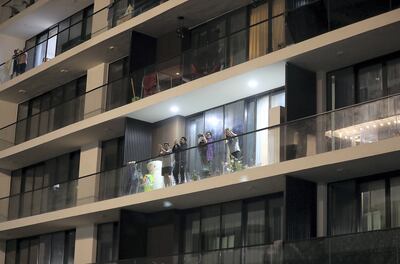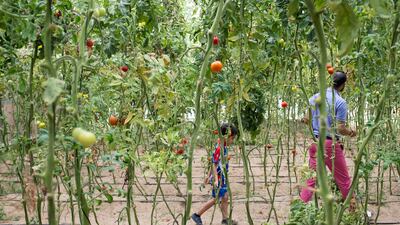Looking out over the greens of a nice golf course this past weekend, I was chatting with an old friend about the status of environmental awareness in the Emirates. While there has been monumental progress, we agreed there is always much more that could be done.
There is also the recognition that more, society-wide effort is needed to protect our biodiversity, on land and at sea, in the mountains, in the desert and in our cities and towns.
It is still common to run across the depressing sight of blowing plastic bags and bits of discarded rubbish lying around in parks and gardens after a holiday weekend. Unless the UAE’s residents each play their part, we might never be able to deal with littering.
One problem, of course, is that many people who live in cities do not have frequent exposure to places outside the urban conurbations, whether that is a remote bit of pristine nature or a well-managed farm – any place with a healthy environmental status.
For apartment-dwellers, often without even a tiny balcony on which they can grow a plant or two, "nature" is not something with which they are directly involved. Although many green spaces exist in cities, busy lives can make it so that many people are not in the habit of visiting them.


City parks, moreover, often reflect a maintenance style characterised by a desire to keep things trim, neat and tidy. Little areas that are a bit unkempt, and therefore, more attractive for wildlife, are often removed. That doesn’t help in terms of teaching the younger generation about the environment and what lives within it.
Moving on from the golf course, my family and I then spent a pleasant few hours at an organic farm in Al Bahia, just outside Abu Dhabi. Here, a wide variety of vegetables and fruit is grown. Turkeys and chickens are raised. Bees produce honey. A coffee shop with a rustic atmosphere invites visitors to sit and spend time and a shop selling a variety of produce encourages people to buy something to take home.

Not surprisingly, the farm attracts a lot of visitors – several hundred a day on a winter weekend. For many, both Emiratis and expatriates, it is a popular outing, somewhere to take the family as well as to do a bit of shopping.
I have been on several occasions, and each time, I am cheered by the successful efforts to engage children in what is going on.
The farm has rabbits, with which children can interact; a recently-born donkey attracts "Oohs" and "Aahs". Baby goats nuzzle excited youngsters. Young camels reach out to eat sugar cane leaves being carefully offered to them.
What a marvellous way to introduce city children to animals. And to show them that cabbages and carrots and okra actually grow… they’re not just something bought at a supermarket!
There are, of course, the occasional problems. One family that recently visited, the owner told me, had a couple of little children that couldn’t resist the temptation to grab the growing plants to pull them up and throw them around. The mother looked on too fondly, making absolutely no effort to tell her offspring that this was not an appropriate way to behave.

Eventually, the farm staff began debating whether to offer to pay the family to leave as soon as possible, so that they would stop causing so much damage. Not the fault of the children, of course, though it does demonstrate that adults as well as their offspring may have much to learn.
A few isolated incidents like this, though, however irritating they may be, do not cancel out the benefits that children, and their parents, can gain from visiting such places. And perhaps, amongst the visitors, are expatriates who may live in tower-blocks here but who have their own little farms and gardens in their home countries. A few fond memories, some wistful thoughts: the benefits in terms of peace of mind and of mental health to be gained from wandering around a farm or a garden are not easy to quantify but they are, nonetheless, present.
We shouldn’t need to visit such wonderful places to harvest some of these benefits. Growing a few vegetables, watching your own plants mature and flower, a little petting zoo where children can learn to interact with animals – it should be possible for this to be done in the cities, too.
Conservation of the environment is a challenge that lies ahead of us. Perhaps our companies and government departments can give a little thought to it, in practical terms. Perhaps owners of buildings can grow more plants. Perhaps educational authorities can encourage schools to do more to teach the younger generation about environmental issues.
If all of that contributes to the creation of a greater sense of environmental awareness, that will help to improve the world around us. From that, we will all benefit.


